
Green Synthesis and Catalysis
Scope & Guideline
Advancing Sustainable Innovation in Chemistry
Introduction
Aims and Scopes
- Green Chemistry Principles:
The journal prioritizes research that adheres to the principles of green chemistry, which aim to reduce the use of hazardous substances and minimize waste in chemical processes. - Catalytic Innovations:
A core focus is on the development and application of novel catalysts, including biocatalysts, metal catalysts, and organocatalysts, that facilitate chemical transformations with improved efficiency and selectivity. - Sustainable Synthetic Methods:
The journal publishes studies on sustainable synthetic methodologies that utilize renewable resources, such as biomass, and explore solvent-free or low solvent processes to reduce environmental impact. - Photocatalysis and Electrochemistry:
Research on photocatalytic and electrochemical methods is emphasized, particularly those that leverage renewable energy sources and minimize reliance on traditional chemical reagents. - Integration of Nanotechnology:
The incorporation of nanomaterials in catalytic processes is a significant area of interest, focusing on their unique properties that enhance reaction rates and selectivity.
Trending and Emerging
- Biocatalysis and Enzyme Engineering:
There is a rising interest in biocatalysis, particularly in the engineering of enzymes for selective transformations, which aligns with the journal's aim to promote sustainable methodologies. - Electrochemical Synthesis:
Electrochemical approaches are becoming increasingly prominent, showcasing their potential for green synthesis by using electricity as a clean energy source for chemical transformations. - Visible Light Photocatalysis:
The use of visible light for photocatalytic reactions is gaining attention, representing a sustainable alternative to traditional thermal methods and enabling new reaction pathways. - Sustainable Polymer Catalysis:
Research into polymer-supported catalysts and their applications in green synthesis is on the rise, reflecting an interest in materials that enhance catalytic efficiency while being environmentally friendly. - Waste Minimization Strategies:
There is a growing emphasis on methodologies that minimize waste generation during chemical processes, reflecting an overarching goal of sustainability in chemical research.
Declining or Waning
- Traditional Metal-Catalyzed Reactions:
There has been a noticeable decrease in studies emphasizing traditional metal-catalyzed reactions, suggesting a shift towards more innovative and sustainable approaches that reduce or eliminate metal usage. - Conventional Organic Solvents:
Research involving conventional organic solvents appears to be waning, as the journal increasingly favors solvent-free or aqueous conditions that align with green chemistry principles. - Non-renewable Feedstocks:
The focus on methods utilizing non-renewable feedstocks has diminished, reflecting a broader trend towards sustainability and the use of biomass or other renewable materials.
Similar Journals

Green Chemistry Letters and Reviews
Advancing sustainable chemistry for a greener future.Green Chemistry Letters and Reviews is a premier Open Access journal published by TAYLOR & FRANCIS LTD, dedicated to advancing the field of green chemistry through the dissemination of high-quality research and innovative reviews. With a focus on sustainable practices and environmental impacts, this journal positions itself at the nexus of chemistry and environmental science, achieving impressive rankings in both categories—Q1 in Chemistry (miscellaneous) and Q1 in Environmental Chemistry as of 2023. This esteemed publication, based in the United Kingdom, not only promotes critical research but also encourages accessibility, having been an Open Access platform since 2012. With a robust H-Index reflecting its academic influence, Green Chemistry Letters and Reviews serves as an essential resource for researchers, professionals, and students seeking to engage with cutting-edge developments in green chemistry from 2007 onwards, continuing its impactful journey into 2024 and beyond.
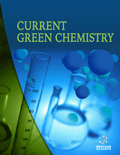
Current Green Chemistry
Exploring innovative pathways for a greener future.Current Green Chemistry, published by Bentham Science Publishers, is a pivotal scholarly resource devoted to advancing the field of green chemistry. With ISSN 2213-3461 and E-ISSN 2213-347X, this journal serves as a crucial platform for researchers and professionals to explore innovative and sustainable practices within the chemical sciences. The journal has demonstrated significant recognition, evidenced by its categorization in the third quartile (Q3) across various specializations including Analytical Chemistry and Inorganic Chemistry, and even a fourth quartile (Q4) in Organic Chemistry, according to the latest Scopus metrics. This indicates a growing influence in relevant fields, making it a valuable reference for contemporary environmental initiatives. The journal's accessible nature, although not open access, ensures researchers can still engage with high-quality, peer-reviewed content. Spanning an impressive converged period from 2019 to 2024, Current Green Chemistry is committed to enhancing the visibility of groundbreaking research that aligns with sustainable development objectives, making it an essential resource for anyone interested in the future of chemistry.
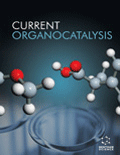
Current Organocatalysis
Connecting Researchers in the World of OrganocatalysisCurrent Organocatalysis is a premier academic journal dedicated to the dynamic field of organocatalysis, published by Bentham Science Publishers, Ltd. Based in the United Arab Emirates, this journal has been a valuable resource for researchers since its inception in 2014 and will continue to publish impactful articles until 2024. The journal provides a platform for sharing groundbreaking research, reviews, and insights that significantly contribute to the fields of Analytical Chemistry, Catalysis, and Organic Chemistry. With a Q4 ranking in several chemistry categories, it identifies and disseminates emerging strategies and methodologies in organocatalysis, promoting collaboration and advancement in the community. While it operates on a subscription basis, the journal ensures accessible content for its audience to further supplement academic learning and professional development. Researchers, professionals, and students are encouraged to explore and contribute to this critical field, leveraging the journal as an essential resource for the latest trends and innovations in organocatalysis.

RUSSIAN CHEMICAL REVIEWS
Your Gateway to High-Impact Chemical ResearchRUSSIAN CHEMICAL REVIEWS, published by the esteemed ND Zelinsky Institute of Organic Chemistry, RAS, stands as a prominent platform for disseminating high-quality research in the diverse field of chemistry. With an ISSN of 0036-021X and an E-ISSN of 1468-4837, this journal has earned its place in the Q1 quartile of Chemistry (miscellaneous) for 2023, reflecting its outstanding impact and rigorous peer-review process. The journal encompasses a wide array of topics within chemistry, providing critical reviews that advance understanding and foster collaboration among researchers, professionals, and students globally. With its consistent publication since 1970, RUSSIAN CHEMICAL REVIEWS not only serves as a valuable resource for the latest advancements in the field but also plays a crucial role in shaping future research directions. The journal is based in the Russian Federation, with its office located at 47 Leninsky Pr, Moscow 119991, RUSSIA. As an essential reference for those in the chemical sciences, it provides an ideal avenue for authors looking to publish impactful reviews that contribute to the broader scientific community.
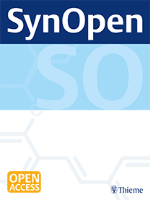
SynOpen
Empowering Open Access for Scientific ProgressSynOpen is an esteemed open-access journal published by GEORG THIEME VERLAG KG, based in Germany, dedicated to advancing the fields of Biomaterials, Catalysis, Materials Science, and Organic Chemistry. Since its inception in 2017, the journal has established itself as a vital platform for researchers wishing to disseminate their findings in a rapidly evolving scientific landscape, earning a commendable Q2 ranking in Materials Science (miscellaneous) and Q3 in other key categories for 2023. With an increasing impact on its disciplines, SynOpen aims to foster interdisciplinary collaboration and innovation by providing unrestricted access to high-quality research, thus promoting a broader reach and visibility for authors. Scholars, professionals, and students alike can benefit from the comprehensive range of topics covered, as the journal's commitment to presenting cutting-edge studies and methodologies positions it as a crucial resource for contemporary scientific inquiry.
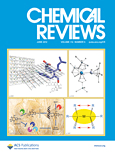
CHEMICAL REVIEWS
Charting the Course for Future Chemical Discoveries.Chemical Reviews, published by the American Chemical Society, is a leading journal in the field of chemistry, renowned for its comprehensive and authoritative reviews on a wide range of chemical topics. With its ISSN 0009-2665 and E-ISSN 1520-6890, this prestigious journal has maintained a remarkable trajectory since its inception in 1924, continuously contributing to advancements in the chemical sciences. As a Q1 journal in the Chemistry (miscellaneous) category, it stands at the forefront of research, boasting an impressive Scopus rank of #1 out of 408 in the field of General Chemistry, positioning it within the top 1% of the field. Chemical Reviews offers invaluable insights and serves as a critical resource for researchers, professionals, and students alike, facilitating knowledge exchange and fostering innovation in chemistry. While currently not open access, it remains a vital component of the scientific community, gathering an extensive readership base eager for the latest developments, methodologies, and theoretical frameworks in this dynamic discipline.
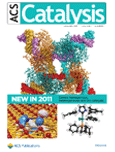
ACS Catalysis
Pioneering Research for Tomorrow's Catalytic ChallengesACS Catalysis, published by the American Chemical Society, stands as a premier journal in the field of catalysis, offering a vital platform for researchers, professionals, and students focused on advancing the science of catalysis and its applications. With an impressive impact factor placing it in the Q1 category for both Catalysis and Chemistry (miscellaneous), this journal has established itself as a leading source of high-quality research findings, currently ranking #21 out of 408 in General Chemistry and #9 out of 68 in Catalysis according to Scopus. Since its inception in 2011, ACS Catalysis has aimed to publish innovative research that addresses the critical challenges in catalytic processes, advancing our understanding of both fundamental and applied aspects of catalysis. With a commitment to promoting open scientific discourse, it serves a vital role for those interested in the latest methodologies, discoveries, and trends in this essential discipline. Based in Washington, DC, ACS Catalysis continues to uphold the highest standards of scholarship and collaboration within the vibrant community of chemists and engineers worldwide.

RESEARCH ON CHEMICAL INTERMEDIATES
Empowering Chemistry Through Rigorous ResearchRESEARCH ON CHEMICAL INTERMEDIATES, published by Springer, is a prestigious academic journal that has been contributing to the field of chemistry since 1984. With an ISSN of 0922-6168 and an E-ISSN of 1568-5675, this journal serves as a vital platform for the dissemination of innovative findings and research advancements related to chemical intermediates. Situated in the Netherlands, it has established a commendable reputation, currently ranked in the Q2 category for miscellaneous chemistry and positioned at #131/408 with a 68th percentile in the Scopus rankings. Though it does not operate under an open-access model, the journal plays a crucial role in connecting scientists, researchers, and practitioners to facilitate a better understanding of synthetic methods, characterizations, and applications of various chemical intermediates. Continually publishing high-quality research until its anticipated convergence in 2024, this journal is an essential resource for those looking to expand their knowledge and contribute to the vibrant community of chemical science.

JOURNAL OF THE INDIAN CHEMICAL SOCIETY
Exploring the Frontiers of Chemistry with a Rich HeritageJournal of the Indian Chemical Society, published by Elsevier, stands as a cornerstone in the field of chemistry, particularly representing the rich chemical research emanating from India.
With a significant history dating back to its establishment, this journal encompasses diverse disciplines including Drug Discovery, Electrochemistry, Inorganic Chemistry, Organic Chemistry, and Physical and Theoretical Chemistry, reflecting the evolving landscape of chemical sciences.
Despite being positioned in the Q3 category across multiple quarters, the journal demonstrates promising rankings in various chemistries, highlighting its commitment to advancing the knowledge and application of chemical sciences. While currently not available as an open access journal, the Journal of the Indian Chemical Society is dedicated to providing a platform for high-quality research that fosters innovation and collaboration among researchers, professionals, and students worldwide.
With its continuous publication from 1973 to the present, it serves as an essential repository for cutting-edge findings and developments in chemistry, striving to connect academia with industry and practice.

Catalysts
Innovating Catalytic Solutions for Tomorrow's ChallengesCatalysts is a leading academic journal in the field of catalysis, published by MDPI since 2011 and well-regarded for its commitment to open access publishing. Based in Switzerland, this journal delivers innovative research and reviews that span various aspects of catalysis, from heterogeneous and homogeneous catalysis to the development of novel catalytic systems. With a commendable impact factor and a notable Q2 ranking in both Catalysis and Physical and Theoretical Chemistry categories, Catalysts plays a critical role in advancing the scientific discourse in these fields. The open-access model ensures that all research articles are readily accessible to researchers and professionals worldwide, fostering collaboration and accessibility to high-quality scientific literature. As the journal continues to publish cutting-edge studies up to its convergence in 2024, it remains an essential resource for anyone involved in catalysis research, from seasoned professionals to emerging scholars.